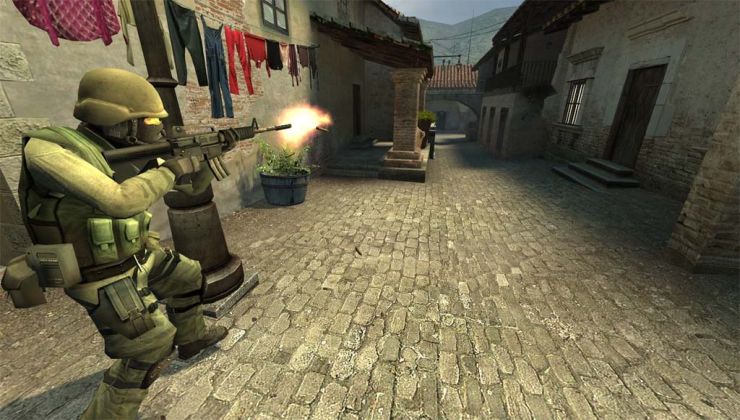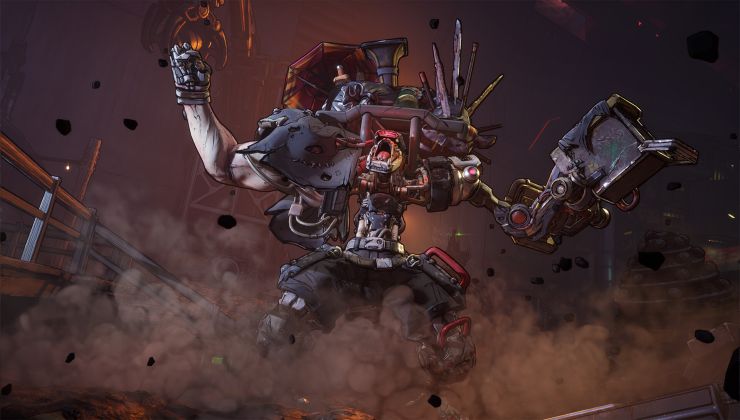Update: Unity have now responded. Bit of a headscratcher! Unity won't go after people using it, but they're removing any chance Spatial has to actually support it at all. They also said in comments they will make their TOS clearer.
Original article below:
While not directly related to Linux gaming, this is still some interesting news to be aware of for those working with the Unity game engine. Especially so, since both the Unity editor and Unity games (if the developer makes it so) work on Linux.
The team behind SpatialOS, a "managed cloud services" provider just announced that "all existing SpatialOS games using Unity, including production games and in development games of all developers, are now in breach of Unity’s license terms" which doesn't sound good at all.
Unity changed their terms of service last month, which specifically mentions this:
You may not directly or indirectly distribute the Unity Software, including the runtime portion of the Unity Software (the “Unity Runtime”), or your Project Content (if it incorporates the Unity Runtime) by means of streaming or broadcasting so that any portion of the Unity Software is primarily executed on or simulated by the cloud or a remote server and transmitted over the Internet or other network to end user devices without a separate license or authorization from Unity.
This new restriction, is likely going to impact quite a few multiplayer games that were using Unity and SpatialOS. Using the wise words of developer Simon Roth on Twitter "Unity is looking to fully control who is allowed create cloud based games. It also means that they can control who starts a game streaming service." and that sounds pretty bad.
It doesn't seem to affect "normal" dedicated server hosting though, just to be clear on that point. The main points seem to be specifically involving streaming. I'm not entirely clear on just how different that is though in this case.
Here's the thing, Unity acquired the game hosting part of the company Multiplay back in 2017 so it's likely a case of Unity wanting to squeeze money out of every other provider, to put them off and get more people to use Unity's own services with their game engine.
As a non-developer, it's still all somewhat confusing I will admit. However, the idea that you pay to use a game engine like Unity as a service (since you don't actually own the Unity copy, it's only a license) and they set the restrictions on what platforms you can run on? Sounds bonkers to me.
See more here.
Ps. Good time to mention the FOSS Godot Engine.
So we won't see any Unity games in Project Stream then?This would seem to prohibit that yeah.
... so that any portion of the Unity Software is primarily executed on or simulated by the cloud or a remote server ...
tells me that game (or middleware) devs have been doing some weird things.
The reason they can do this is because streaming a game basically distributes a copy to whomever is playing it (though the copy technically is on the server, an image of it is transmitted to the user). Since Unity have to license redistribution rights to all developers who use the engine, they can control the terms of that redistribution. Of course, it's quite possible that outside companies could continue to use an older version which doesn't have the restrictive terms, though I'm sure that Unity would try to prevent this.Yeah, that doesn't seem possible: https://twitter.com/Improbableio/status/1083361046696476672
The reason they can do this is because streaming a game basically distributes a copy to whomever is playing it (though the copy technically is on the server, an image of it is transmitted to the user). Since Unity have to license redistribution rights to all developers who use the engine, they can control the terms of that redistribution. Of course, it's quite possible that outside companies could continue to use an older version which doesn't have the restrictive terms, though I'm sure that Unity would try to prevent this.
When using streaming, shouldn't the client only need minimal software, comparable to what is in the Steam Link?
The reason they can do this is because streaming a game basically distributes a copy to whomever is playing it (though the copy technically is on the server, an image of it is transmitted to the user). Since Unity have to license redistribution rights to all developers who use the engine, they can control the terms of that redistribution. Of course, it's quite possible that outside companies could continue to use an older version which doesn't have the restrictive terms, though I'm sure that Unity would try to prevent this.Yeah, that doesn't seem possible: https://twitter.com/Improbableio/status/1083361046696476672
Whether they can change the terms retroactively is something that would most likely have to be settled in court if it were challenged. Changing terms retroactively is rather dubious legally, but I'm sure the
The reason they can do this is because streaming a game basically distributes a copy to whomever is playing it (though the copy technically is on the server, an image of it is transmitted to the user). Since Unity have to license redistribution rights to all developers who use the engine, they can control the terms of that redistribution. Of course, it's quite possible that outside companies could continue to use an older version which doesn't have the restrictive terms, though I'm sure that Unity would try to prevent this.
When using streaming, shouldn't the client only need minimal software, comparable to what is in the Steam Link?
Yes, but an additional copy is created for each user and then the results of what it's doing are distributed to a client. That is generally considered to be enough to constitute redistribution. In the case of a Steam Link, the results of the same copy already running on the computer go to another device used by the same person who is running the computer, so that does not constitute redistribution.
Good explanation, I think.The reason they can do this is because streaming a game basically distributes a copy to whomever is playing it (though the copy technically is on the server, an image of it is transmitted to the user). Since Unity have to license redistribution rights to all developers who use the engine, they can control the terms of that redistribution. Of course, it's quite possible that outside companies could continue to use an older version which doesn't have the restrictive terms, though I'm sure that Unity would try to prevent this.
When using streaming, shouldn't the client only need minimal software, comparable to what is in the Steam Link?
Yes, but an additional copy is created for each user and then the results of what it's doing are distributed to a client. That is generally considered to be enough to constitute redistribution. In the case of a Steam Link, the results of the same copy already running on the computer go to another device used by the same person who is running the computer, so that does not constitute redistribution.
Indeed, streaming a game is more than just, say, watching Netflix.
When using streaming, shouldn't the client only need minimal software, comparable to what is in the Steam Link?
As far as I can see the terms cover using a Steam Link too: "over the Internet or other network"
When using streaming, shouldn't the client only need minimal software, comparable to what is in the Steam Link?
As far as I can see the terms cover using a Steam Link too: "over the Internet or other network"
The terms may seem to cover using a Steam Link, but there are practical reasons why they don't really.
First, the terms only concern themselves with redistribution and using Steam Link doesn't constitute redistribution, so the terms don't actually apply in that case. These terms are for the developer, not the user of the product developed. You could read all the terms as though they started with, "When you are redistributing the software...."
Second, it is neither practical nor desirable to try to limit use over Steam Link. In other words, 'Who's gonna know?' and, 'Who cares?'
Last edited by CFWhitman on 10 Jan 2019 at 7:36 pm UTC
When using streaming, shouldn't the client only need minimal software, comparable to what is in the Steam Link?
As far as I can see the terms cover using a Steam Link too: "over the Internet or other network"
It's a little ambiguous, but in the paragraph it talks about "...transmitted over the Internet or other network to end user devices", so it shouldn't affect steam links as is not steam the one that is streaming but the user to himself. In other words, the full paragraph refers to what distributors can do, but not what end users can.
This licensing thing has a lot of sense from the market perspective. Enterprise are always finding/creating new licensing contracts, so it's quite understandable that Unity want to know before hand how the streaming service will be working with their license. I mean, the cloud gaming service are SaaS which means that the people normally pays a monthly fee in order to get access to a game library, so I would expect that engine will want to make an specific license for each service (at least until the licensing for this services evolve enough to get some licensing standard in the industry) .
What I still don't get is Unitys interests in this. Did they really plan to upset their customers to squeeze money out of streaming services?
It appears to be an anti-competitive ploy. They now own a streaming service, so if they restrict you from using their engine for your streaming service, then there is less competition for their streaming service.
If Unity use were great enough to constitute a monopoly you could use this as a legal argument to force them to split the streaming service into a separate company so that there would be no motive for the development company to restrict its customers in this way. I don't think that Unity quite rises to the status of a monopoly, though.
As a sidenote: In the post-Moore's Law world, where people don't have to replace their PC every 2 years to keep able running newer games, but in a world where also most people still have metered internet, I don't understand the appeal of streaming games, honestly not.
Last edited by iiari on 10 Jan 2019 at 3:58 pm UTC
There are a lot of things I currently do with Unity (and payed for "plugins"), that will be a lot more work in Goddot and it will cost me months of free time, but this settles it.
Last edited by const on 10 Jan 2019 at 4:10 pm UTC
What I still don't get is Unitys interests in this. Did they really plan to upset their customers to squeeze money out of streaming services?
It appears to be an anti-competitive ploy. They now own a streaming service, so if they restrict you from using their engine for your streaming service, then there is less competition for their streaming service.
If Unity use were great enough to constitute a monopoly you could use this as a legal argument to force them to split the streaming service into a separate company so that there would be no motive for the development company to restrict its customers in this way. I don't think that Unity quite rises to the status of a monopoly, though.
If that's the reason, then I think protecting the streaming service will most likely hurt the rest more than it helps.
It also means that they can control who starts a game streaming service
It means that they can control who starts a game streaming service with Unity games.
With Unity, the engine is free for anyone to use, until the profits exceed $100.000. Maybe the calculations were designed for a market that sells individual units of a software, not sharing the same copy to multiple steam clients (even if only one player can play a given unit at a given time). Just a guess.













 How to set, change and reset your SteamOS / Steam Deck desktop sudo password
How to set, change and reset your SteamOS / Steam Deck desktop sudo password How to set up Decky Loader on Steam Deck / SteamOS for easy plugins
How to set up Decky Loader on Steam Deck / SteamOS for easy plugins
See more from me